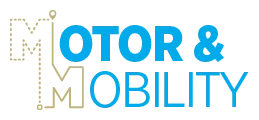
This article was paid for by a contributing third party.

Blog: An era of change for motor insurance - By Bits' CEO Rimmer on things to consider to avoid being overtaken

The insurance industry is in the middle of a well overdue identity crisis. For too long activity has been predicated on price. Yet, in an era of changing regulations and customer expectations, engagement and experience are finally becoming defining characteristics for both insurer and customer alike.
Data – the bedrock of all digital services
Consumers have never been as aware of their own data as they are today. Regulations like the General Data Protection Regulation have popularised its value while simultaneously forcing companies to safeguard it to a high standard. This – combined with pervasive messaging, awareness around cybercrime, and identity theft – means information isn’t something consumers give away lightly.
Yet it is the bedrock of all digital services.
People understand that they need to provide data to get access to services; it has been an established trade-off for some time. The recent shift is due to consumers now expecting that, by providing access to detailed and real-time personal data, they should get a better experience or saving in return.
Spotify and Netflix are good examples of this. For insurance, a sector that cannot match the volume and variety of mass-market consumer platforms for choice, this was historically done on price, but updates to legislation have changed that.
A long tail of usage-based benefits
We’ve been indoctrinated into becoming a nation of switchers thanks to people like journalist Martin Lewis and the myriad of price comparison sites are the net result. But the recent changes to the dual pricing regulation – where insurance providers lower acquisition prices to win new business, only to ramp up renewal prices to try to recoup their acquisition losses – is going to make buying on price alone more challenging.
This is because the discounts consumers are used to seeing simply won’t be there anymore.
To find a lower-cost policy, people are going to need to explore new ways of doing things, which will bring usage-based insurance to the fore. Aside from being fairly priced, these policies will also provide a much longer tail of benefit to both the driver and insurer, precisely because the data exchange is so vast compared to traditional policies.
An opportunity to become truly customer-focused
Insurance companies have been presented with an opportunity to become truly customer-focused, with telematics allowing risk – and therefore price – to be more individually aligned as opposed to being based on generic mass data. Aside from providing a clearer, more flexible understanding of risk, insurers can now move away from a purely cost-saving model as ease-of-doing business becomes increasingly important. As a result, brands will find themselves competing on things like value, trust, and understanding.
Customers can then be rewarded through tailored pricing, incentives, and other value-adding services like apps, rewards, and personalised usage data, which will ultimately increase retention. Aside from these benefits, consumers have transparency and clear pricing and can see exactly how their premiums are calculated and are therefore much better equipped to make the right decision at renewal time.
UBI is the journey, not the destination
For insurers, usage-based insurance is the journey, not the destination.
Ultimately, the aim is to improve trust from customers so that obtaining driving data isn’t perceived as an impingement on privacy – it isn’t.
Rather, it will be a scenario based on data permissions where the policyholder allows the insurer or broker to have access to distinct information and only the information they want to give, which can be redacted at any time. This is very analogous to how a lot of other data transactions work online and doing so via mobile apps is going to become the norm for the insurance industry.
With a root of trust, consumers will be less likely to move on price; but will instead value the best experience with the fairest policy. On the other side of the coin, greater personalisation will create better products for insurers that will hugely help with retention. It’s a win-win situation.
A two-way dialogue with drivers
It’s somewhat ironic that it has taken the motor insurance industry so long to have a two-way dialogue with drivers. But to continue the simile, it’s far from being in the fast lane just yet.
We’re at the start of a new era of insurance with UBI data affording insurers a huge opportunity to engage and giving drivers the platform to justifiable expect more from their insurance service.

Motor and Mobility Conference
The challenges facing the motor insurance market are daunting as the pace of change moves up through the gears. The industry, the manufacturers, the law, technology are all in the fast lane – but do you know where that journey will end? This is the conference that will help answer that vital question.
Bringing together hundreds of attendees, including senior representatives from the UK’s leading insurers, regulators and motor manufacturers, Post’s Motor & Mobility Conference explores the key issues currently facing the motor insurance sector.
To find out more, click here: Motor & Mobility Conference
Sponsored
Copyright Infopro Digital Limited. All rights reserved.
You may share this content using our article tools. Printing this content is for the sole use of the Authorised User (named subscriber), as outlined in our terms and conditions - https://www.infopro-insight.com/terms-conditions/insight-subscriptions/
If you would like to purchase additional rights please email info@postonline.co.uk
Copyright Infopro Digital Limited. All rights reserved.
You may share this content using our article tools. Copying this content is for the sole use of the Authorised User (named subscriber), as outlined in our terms and conditions - https://www.infopro-insight.com/terms-conditions/insight-subscriptions/
If you would like to purchase additional rights please email info@postonline.co.uk
